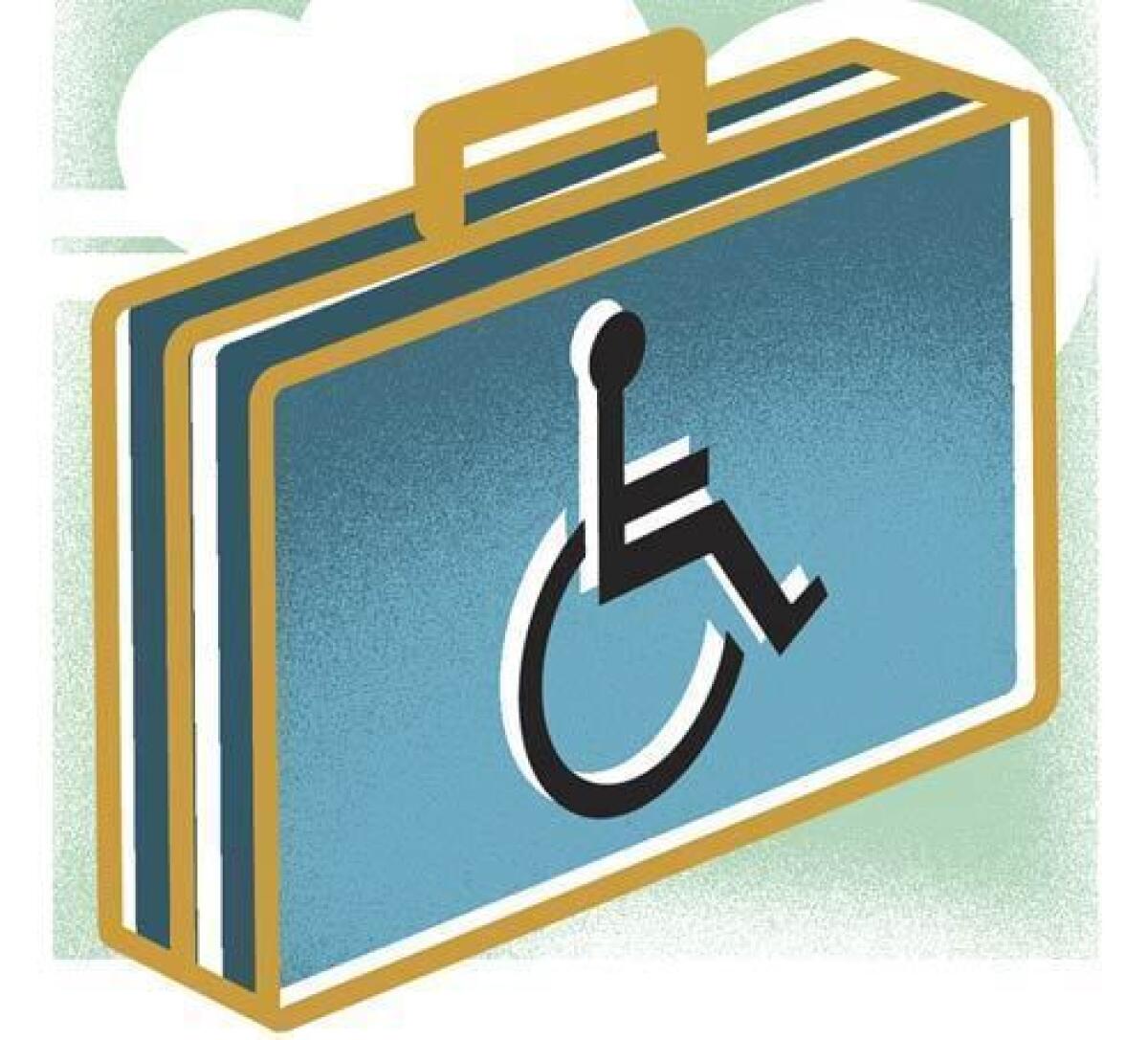On the Spot: ADA rules on hotel room accessibility for disabled

Question: Iâm a disabled traveler who makes hotel reservations about half a dozen times a year. I always reserve an accessible room, but recently it seems as if front-desk staff doesnât know what that is. Two times in recent months, Iâve been put in rooms that didnât have grab bars. One hotel told me none of the toilets in its accessible rooms had grab bars. Another clerk sent someone to check the bathroom before we went up, and he said there was a grab bar in the shower but not by the toilet. That grab bar was a towel bar. I donât think itâs unreasonable to expect that Iâll be able to use the toilet in the room. What does the Americans With Disabilities Act mandate? And who trains hotel personnel?
Susan St. Laurent
Bakersfield
Answer: If you read the Justice Departmentâs â2010 ADA Standards for Accessible Design,â dated Sept. 15, and youâre not a detail person, you may be tempted to throw your hands into the air and screech, âJust do the right thing, for heavenâs sake.â Then you get a letter like St. Laurentâs and you understand that the mind-numbing detail is necessary and important. (For specifics, go to the standards at https://www.lat.ms/IhJkJt, and read Section 806 on âtransient guest lodgings,â with references to sections 603-610, including 609, which addresses grab bars.)
Critics of the original Americans With Disabilities Act, signed into law in 1990 byPresidentGeorge H.W. Bush, have said the legislation was vague and some issues could be resolved only by litigation. The 2010 ADA standards provide a level of detail that the original law did not and cover some of the issues in making a hotel reservation.
âUntil the 2010 standards became effective on March 15 of this year, the responsibility of a hotel to provide and guarantee reservations was somewhat clouded,â said Martin Orlick, a partner with Jeffers, Mangel, Butler & Mitchell Global Hospitality Practice and the leader of the ADA compliance and litigation team. âThere was no specific requirement that a reservation, once made, guaranteed the room you reserved would be made available.
âThe current requirement, when someone books a specific type of room, is that room be âhard blockedâ and available,â Orlick said.
But how do you know youâre getting a room that will work for you? The hotel must list its accessible features, Orlick said. If grab bars are listed as a feature, the room is required to have them. One exception: condo hotels, because the units are individually owned and cannot fall under a hotelierâs umbrella.
Knowing the difference between a grab bar and a towel bar goes beyond a compliance issue, as St. Laurent suggested. But lodgings arenât left in the wilderness when trying to comply. The American Hotel & Lodging Assn. âprovides training materials and tools that will help hotels,â said Kevin Maher, senior vice president of governmental affairs for the lodging association, which is based in Washington.
Hotel operators also know that making their properties accessible is good business. âI think probably a successful hotel operator is going to understand this is a growing demographic with the population aging and [with] advances in medical treatment and in mobility,â Maher said. âYou are ahead of the curve if you have a property that meets these requirements.â
Because of employee turnover, it behooves a hotel to keep training in the fore. And it behooves the customer to ask and ask and ask again about accessibility features just to be sure. Should it be this way? No. But until the world understands â and this comes with knowledge and experience â some of the education process belongs to the customer. And then the customer can impress upon hoteliers that he or she will give business only to those places that go to the head of the class.
Have a travel dilemma? Write to [email protected]. We regret we cannot answer every inquiry.
More to Read
Sign up for The Wild
Weâll help you find the best places to hike, bike and run, as well as the perfect silent spots for meditation and yoga.
You may occasionally receive promotional content from the Los Angeles Times.







